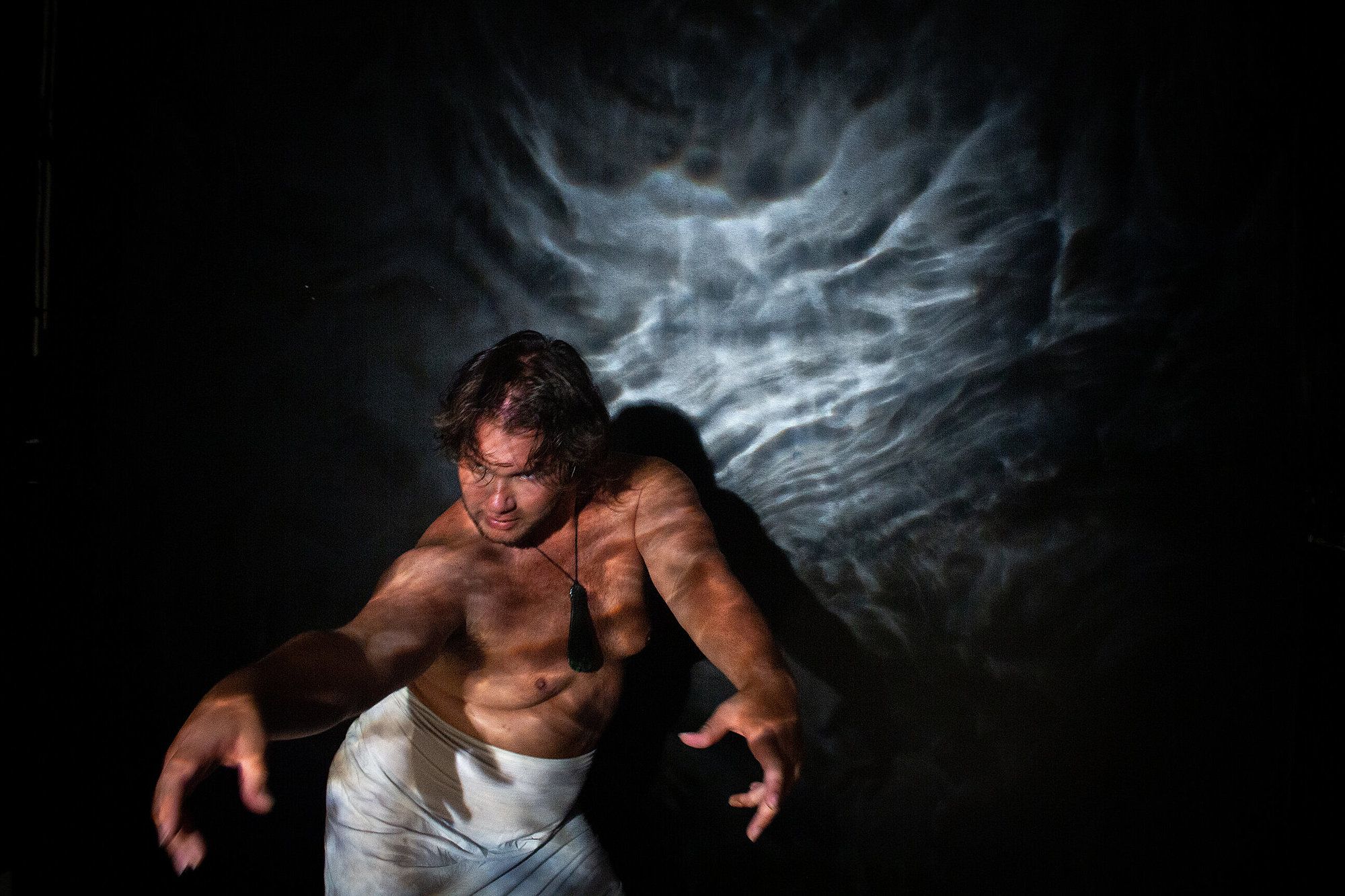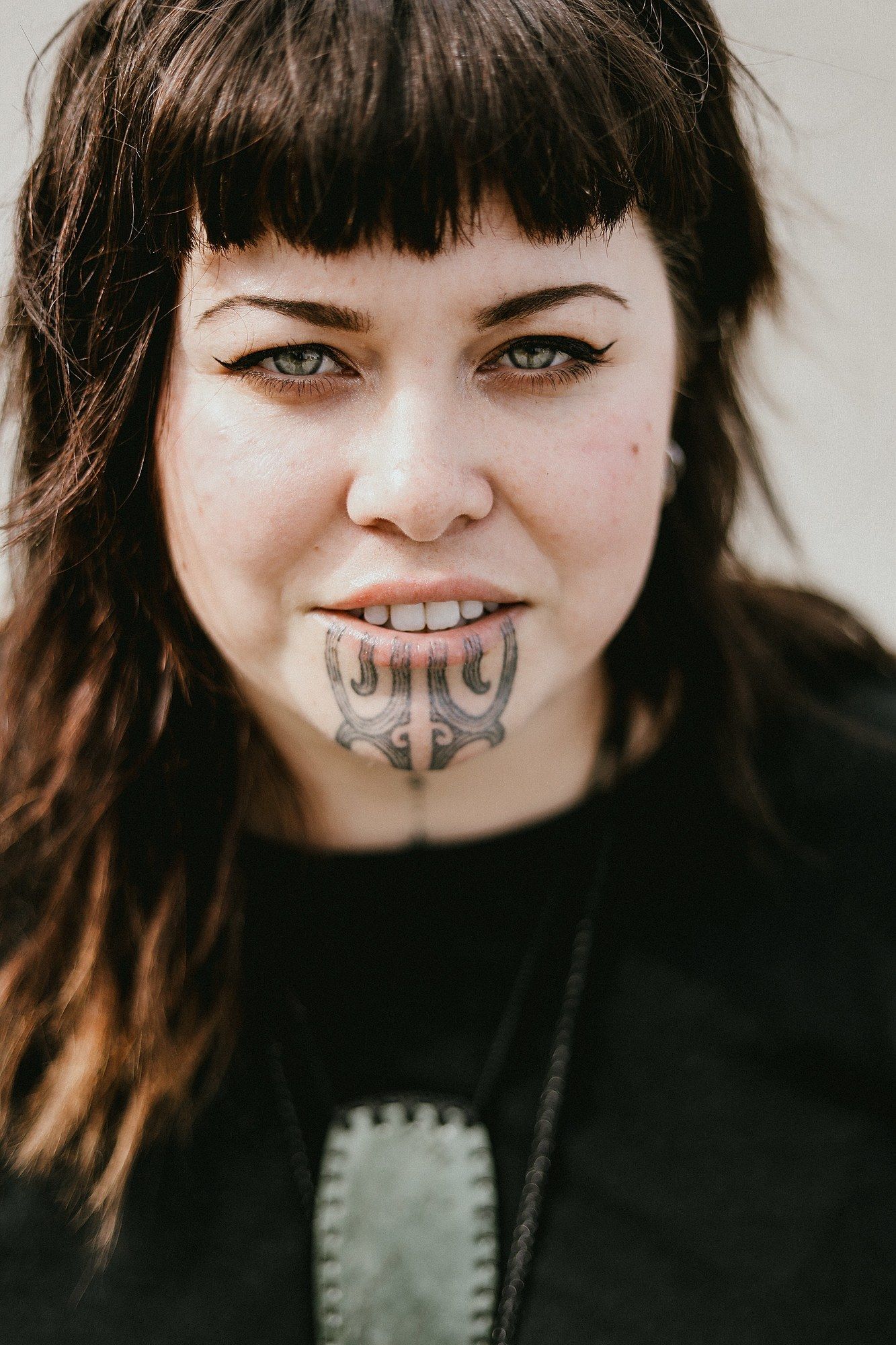He Tangata
Ana McAllister in conversation with Jayden Rurawhe and Paris Elwood about rongoa and healing through takatāpui performance.
*The term takatāpui is a broad one, describing a sexual partner of the same sex, as well as non-heteronormative sexualities and genders.
He Tangata, the opening for Wellington Pride 2021, is a work that not only centres takatāpuitanga but glorifies takatāpui* existence, a glory that has been ignored for too many generations. Jayden Rurawhe (Te Rarawa) is the takatāpui Arts Director of the Wellington Pride Festival 2021. Jay is also the co-director of He Tangata alongside Paris Elwood, a Gay Pākehā who has whakapapa to Greece. I wanted to understand the whakapapa of He Tangata, so I asked them to discuss it with me.
Before Tūtānekai and Hinemoa, there was Tūtānekai and Tiki, a takatāpui romance unheard by many Māori. Described in some stories as a ‘strong friendship’, undoubtedly the colonial equivalent of the queer couple who are definitely not just ‘roommates’, Tūtānekai and Tiki’s relationship started as childhood friends. It blossomed into romance in a society not suffocated by homophobic judgement as it was following colonisation. The creators of new theatre performance He Tangata draw from Tūtānekai and Tiki’s queer love, one of the few surviving stories of takatāpui identities, as a beacon of takatāpui identity.
Performers shapeshift from bodies, whenua and forms of celestial beings, captured within a world of kapa haka, taonga pūoro, lighting and projection. He Tangata reveals the richness of tikanga Māori and ancient storytelling to reimagine the lives of takatāpui through dance.
Ana: If you could describe He Tangata in three words, what would they be?
Jayden and Paris: Rongoa, healing and remembrance.
Ana: I think the notion of rongoa as a more abstract concept is really fascinating. When we hear ‘rongoa’, we often think of kawakawa tea or other tonics and balms. But this idea that rongoa can come in many forms, such as this one [He Tangata], is really interesting. So how do you see He Tangata as a form of rongoa? And what specific trauma is it trying to heal?
Jayden: Dance, for me, is medicine. When I am moving, I have no pain, I have no trauma, I am soothed by movement. When I watch storytelling through movement, I receive the same calming and healing that kawakawa tea would give me. By reconnecting with takatāpuitanga, we are healing ourselves by way of movement, a metaphysical medicine. I hope that we can cast that feeling out to the audience, inviting them to join in the generational grief and healing of takatāpuitanga and Māoritanga. He Tangata is ultimately about death, creation, love and pain. We invite the audience to follow us on that journey and allow this medicinal movement to be their rongoa.
Ana: Yeah, and I think that that ability to transcend just physical healing and move through to the metaphysical is also inherent for us as Māori artists. This idea that healing is not a one-dimensional thing. And when we look at Māori forms of healing like mirimiri and romiromi, we see how the body itself stores grief and trauma, and how the movement of the trauma is healing in itself. Paris, as co-director, how did you find the process of forming He Tangata? It may have been different from what Jayden felt, given that you do not have Māori whakapapa.
Paris: It’s been very important for me to acknowledge that I am Pākehā, and reflect on what that means for my involvement in this show. Primarily, that manifests in me consciously and actively listening to Jayden. I may be a co-director, but this is a story for those who whakapapa to this land to tell. Jayden and I have vastly different creative processes, but I believe they complement each other. For example, I’ve noticed that Jayden likes to think holistically and with broad strokes, often conjuring jaw-dropping concepts (even if somewhat unrealistic). As the analytical thinker of the two of us, I consider it my job to actualise these concepts and craft them as close to Jayden’s vision as possible. We go back and forward in this manner until the concept feels right to them. It’s so vital that Jay begins the process with absolute creative freedom so that they can capture the mauri of the story in its purest form.
I have to admit, I often feel quite whakamā about being the co-director of a show with the kaupapa of uplifting takatāpui voices. Last week we were rehearsing a dance that deals with the colonisation of Aotearoa. I had to explain the emotional weight behind the piece whilst looking into our beautiful takatāpui dancers’ eyes. I don’t know how to describe the feeling, but it was yet another reminder of the generational pain my Pākehā ancestors inflicted on tangata whenua. Living in a colonised country, I must remind myself that I am just as responsible for my ancestor’s actions as they were. If not, I am only allowing the same pain to continue.
Ana: What do you hope that those who see He Tangata will come away with?
Paris: I was actually thinking about this today. Some of my takatāpui friends have probably never considered the division between their takatāpuitanga and Māoritanga. I hope that, even if it’s only one person, this show can help mend a rift they didn’t even know they had.
Jayden: I would love takatāpui to feel like they can come home, out of te kore and into a new light. That they feel seen and heard, and thought about. He Tangata is a reminder to all – Māori, Pākehā and Tauiwi – that queerness and gender identity have always been woven within te ao Māori. To tell the story of takatāpui existence, we maintain our ability (as Māori) to learn and practice ancient methods of preservation that have kept our cultural traditions and reo alive. He Tangata is about remembrance and acknowledgement. Through these, we continue to unravel the grief and trauma caused by the colonial imprint. It starts a conversation, creating kōrero, and provides education to all people. Decolonising the thought and ideology of gender and sexuality within te ao Māori. I felt it was important to create this show to tell my people’s stories from a Māori perspective.
It is no longer time to listen to the foreigner, the foreigner will, for once, listen to us.
13 March, 7pm
The Opera House, Wellington
Photography by Renati Waaka. All images courtesy of He Tangata.




